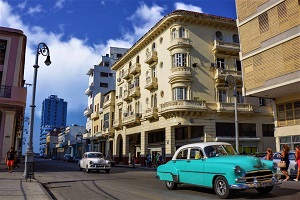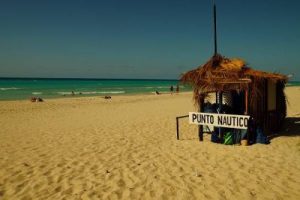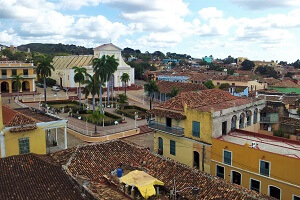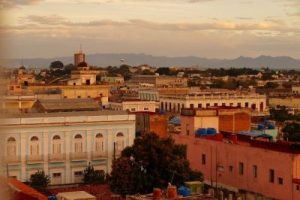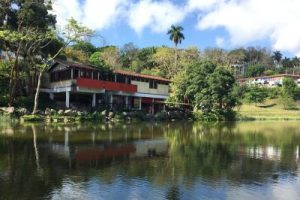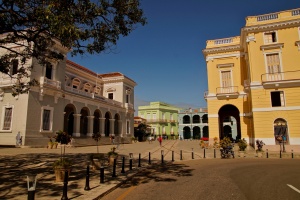How to emigrate to Cuba
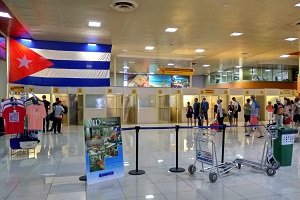
Updated: Dec 19, 2022
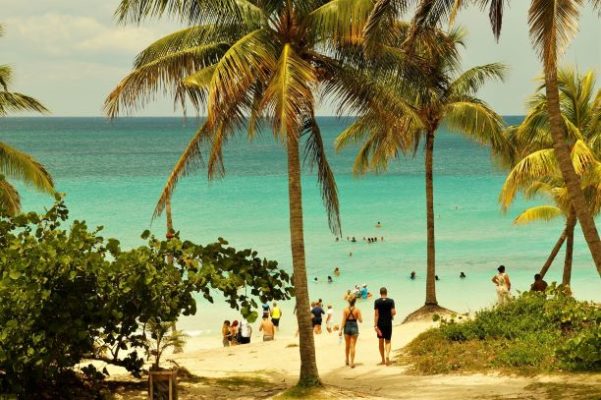
Updated: Dec 19, 2022
It can happen quickly: During your stay in Cuba you fall in love with the lovely island or - in the vast majority of cases - with one of the charming residents. Then often arises the question: Can you emigrate to Cuba? This article answers the most common questions regarding living in Cuba.
If you want to emigrate to Cuba, you first have to overcome the legal hurdle of residence, because as a tourist you can stay on the island for a maximum of three months. Longer stays are possible, for example if you are enrolled in a language course as a student.
Students receive a temporary residence permit for the duration of the booked language course. The costs for language lessons can be kept quite low with the minimum number of hours.
If you want to stay in Cuba permanently, you have two other options. The first would be to working for a international company. The second option is to marry a Cuban partner. If you are married to a Cuban, you can apply for a permanent residence permit. With the so-called residencia permanente (permanent residency), foreign citizens receive the same rights as Cubans. These include access to subsidized food and free health care.
In addition, foreigners with a permanent residency are allowed to work as self-employed persons and can also acquire vehicles and real estate (see below). However, the permanent residence permit is not cheap. Translating the documents and applying for a permanent residence will cost around 1,500 USD. If you want to get married in Cuba, you have to raise another 1,000.
Working as a foreigner in Cuba
If you want to work as a foreigner in Cuba, it is advisable to apply for a job with an international employer from your home country. Experience has shown, that this is not an easy undertaking, due to the limited number of international companies on the socialist island. Cubas economy is not very business friendly, but there have been some positive developments recently.
Working for an international company means also that you would be based in Havana or one of the other touristic places, because most potential employers are based in the capital Havana or one of the major travel destinations - like Varadero.
For working in Cuba you should speak Spanish and English, besides to have knowledge according to the job requirements. There are more vacancies in development aid and, of course, above all in the tourism sector. The wages depend on the qualification and the employer. In relation to the cost of living, however, jobs in tourism are usually not excessively remunerated.
Working in Cuba is therefore mostly something for lovers of the socialist island, who see plenty of sun and dream beaches as a central motivation.
Like said before, after receiving the residencia permanente, you could also become self-employed. Most emigrants run private accommodation (Casa Particluars) or a restaurant. Hower, if you consider entrepreneurial activities you should keep an eye on the not inconsiderable bureaucracy and especially the high investment costs.
Buying property in Cuba
Foreigners without a permeant residency are only allowed to purchase real estate in a few apartment buildings in Havana. Those buildings are particularly for foreigners. The prices in these properties vary around 1.000 USD per square meter.
The regular real estate market is only accessible to Cubans or for foreigners with the permanent residency. The house prices in good parts of Havana and in the attractive holiday regions are quite high. In the capital the prices range from $ 500 to $ 1000 per square meter. A 3-room apartment can easily cost 50,000 to 100,000 USD. It is not uncommon for houses in Varadero - or other prime locations - to cost more than 250,000 USD. In the event of a divorce, the ex-partner is generally awarded half of the assets.
How expensive life is in Cuba
The cost of living in Cuba are quite high. Imported food - almost everything is imported - costs around three times the European price. At least most fruits and vegetables are much cheaper than in developed countries.
Whether food is imported or locally produced, there is also the fact, that the supply is extremely limited. The same applies to all other consumer goods. In particular, vehicles are extremely expensive. If you want to stay mobile, with the often catastrophic passenger traffic, you get a set of wheels from around 20,000 USD. At such a price, however, one shouldn't expect luxury. Cars in this price range are ready for scrap by international standards.
Retiring in Cuba: Emigrate as a pensioner
Retirees looking to immigrate to Cuba should first consider the high cost of living. You can live quite sensibly with around 1,000 USD a month. If you are a frugal fellow, you can survive also on a smaller budget.
It is particularly important to ensure comprehensive health insurance coverage because foreigners have to visit special hospitals that are anything but cheap. Anyone who thinks that with the residencia they have permanent access to the free Cuban system and therefore does not need insurance is unfortunately wrong.
In the case of serious illnesses, you absolutely have to go to one of the international hospitals or get better treatment abroad. According to Western standards, Cuban protection only covers insignificant diseases. Conclusion
Conclusion
Emigrating to Cuba is not an easy undertaking and therefore only something for adventurers or real lovers of the country who have ample financial resources. If you are only looking for sun and sea, it is much easier to emigrate to Spain.
